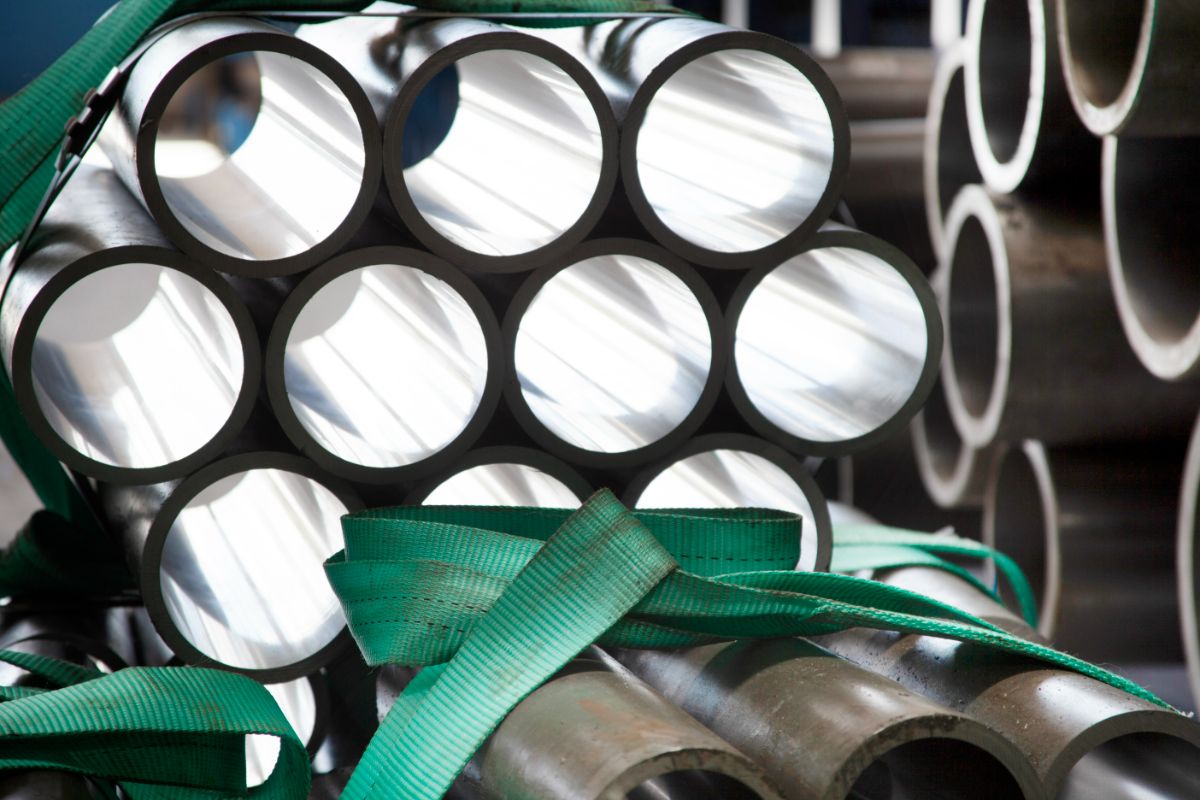
What is Steel Pipe Grading?
What factors contribute to the grading of steel pipes?
- Material composition
- Tensile strength
- Pressure ratings
- Temperature tolerance
- Corrosion resistance
Overview
- Steel pipe grading is vital for construction projects to ensure the steel used meets specific strength requirements and environmental conditions for the job at hand.
- Understanding material composition, including factors like carbon, chromium, and nickel content, is crucial for selecting the right steel pipe grade that offers the necessary tensile strength, durability, and corrosion resistance.
- Knowledge of tensile strength, pressure ratings, temperature tolerance, and corrosion resistance in steel pipes is fundamental for safe operation, long-term reliability, and cost-effective maintenance in various industrial applications.
Steel pipe grading ensures that the steel used is strong and suitable for the job. To choose the right steel pipe, it’s important to know exactly what your project needs. Each grade of steel pipe has different mixes of metals, giving each one certain strengths and the ability to handle different conditions.
For this reason, this article will look into different grades of steel pipes. Through this guide, you’ll come to understand that steel is distinguished by its unique set of characteristics.
Material Composition
What a steel pipe is made of remains one of the most influential factors that defines unique properties and suitability for diverse applications. Here’s an overview of common grades:
- Carbon Steel (ASTM A53/A106/A333): Versatile for general applications in oil, gas, construction, and infrastructure.
- Stainless Steel (ASTM A312/A358/A269): Recognized for corrosion resistance, ideal in chemical, food processing, and marine industries.
- Alloy Steel (ASTM A335): With elements like chromium and nickel, apt for high-temperature applications in power plants and refineries.
- API 5L Grade B (Seamless and Welded): Tailored for oil and gas transportation.
- Duplex and Super Duplex (ASTM A790): Blending characteristics of austenitic and ferritic stainless steels, suitable for aggressive environments.
- Casing and Tubing (API 5CT): Crafted for oil and gas well construction.
When you choose the right type of material, you are ensured with the environmental conditions and operational demands, impacting long-term performance and reliability. Knowledge empowers prudent selection for structural integrity and cost-efficiency in your projects.
Tensile Strength

Tensile strength is a critical factor in steel pipe grading, reflecting its ability to withstand axial stress without deformation. Essentially, it measures the maximum stress a material can handle when stretched or pulled before giving in. The higher the tensile strength, the better the pipe can resist external forces, influencing its overall grade.
In applications where structural integrity is crucial, or when transporting fluids under pressure, pipes with superior tensile strength are preferred for their durability and reliability. That’s why when it comes to grading and selecting steel pipes for diverse industrial and construction needs, tensile strength stands out as a crucial parameter.
Pressure Ratings
Pressure ratings indicate the maximum pressure that a steel pipe can safely withstand without experiencing failure or rupture. Using a pipe with an inadequate pressure rating can lead to catastrophic failures, leaks, or even explosions, which could damage equipment and infrastructure.
During the steel grading process, pipes are evaluated based on their intended use and the pressure they will encounter. Properly grading steel pipes for pressure ratings ensures that the selected materials can meet the performance requirements of the application. This maintains the structural integrity of the system.
Temperature Tolerance

In applications like power plants, where steam passes through pipes at high performance, temperature tolerance in the grading of steel is pivotal. Steel pipes must be able to withstand thermal expansion without distorting or weakening. By grading pipes based on their thermal endurance, engineers can ensure that they have undergone rigorous testing. This verifies their ability to maintain structural integrity and strength under high-temperature conditions.
As a result, they can mitigate the risk of structural degradation or failure due to prolonged exposure to high temperatures.
Corrosion Resistance
Choosing a corrosion-resistant steel grade for pipes offers several benefits. It extends the operational life of the pipes, as they can withstand the corrosive effects of the environment for a longer time. This reduces maintenance and replacement costs, as the pipes will require fewer repairs or replacements.
When grading steel pipes, construction professionals consider the corrosive challenges they will face in their operating environment, such as atmospheric, chemical, saltwater, soil and groundwater, and other types of corrosions.
That’s why they select a steel grade that can endure these specific corrosive conditions, ensuring that the pipes can resist this and maintain their functionality over time.
Key Takeaway
Choosing the right steel pipe grade is critical for building strong and lasting projects. The best grade depends on the project’s needs, considering factors like strength, resistance to elements, and cost.
The decision is important as the right steel grade means success, while the wrong one can cause problems. There are many different grades of steel pipes, each designed for a specific use. Remember to focus on the key qualities of steel grading such as strength, endurance, and resistance to ensure a solid outcome.
Rely on Supreme Pipe to help you pick the steel piping products that match your specific needs, ensuring your project is built to last. Get in touch with us now to know more.


